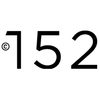Why Chinatown market is changing its name
by Luca Falovo
·
Mike Cherman founded the streetwear brand Chinatown Market in 2016, inspired by the roots of the New York where he grew up. In fact, initially Mike had thought of calling the line Canal street Market, inspired by the well-known Downtown street known for the sellers of counterfeit goods and the Meltin Pot of cultures. Unfortunately that name had already been taken and the choice immediately fell on Chinatown Market, shifting attention to the neighborhood adjacent to Canal Street.
Since then Chinatown Market has grown dramatically selling sweatshirts, t-shirts and trousers saturated with huge prints like its logo, a giant smiley-face. His irreverent way of presenting products in a street stall style, the affordable outlet price and the countless collaborations with the Grateful Dead, Lacoste, Nba and Mike Tyson, make Chinatown Market one of the most requested brands in the international streetwear scene alongside brands of the caliber of Supreme and Alife.

However, things change in 2021 when Chinatown Market, more specifically its name, find themselves at the center of a discussion regarding streetwear, races and cultural appropriation. The growing racial violence also towards the Asian American community puts the brand name in a bad light. After the shooting in Atlanta where six Asian women lost their lives Chinatown Market creates a T-shirt to donate the proceeds to charity but it's not enough. An online petition rails against the brand and calls for its rebranding.
In the petition, Julian Han Bush explains: "Chinatown neighborhoods around the world are the heart of Asian communities, the places where Asians have long felt safe when they were unwanted immigrants by society"
Accused of cultural appropriation and promoter of wrong stereotypes Chinatown Market, at the end of March 2020 she decided to change the brand name apologizing for any misunderstandings.

The petition therefore reaches its goal and with over 3000 signatures it obliges Chinatown Market to rebrand.
Even from this we understand the importance and influence that streetwear brands have today, evolved from neighborhood micro-brands to fashion giants and for this very reason obliged to have a cultural and moral respect for society.
"It's easy for Cherman, he's white, naturally privileged," says Vicki Ho founder of the Asian cultural magazine Banana Mag. "It's as if Cherman hadn't thought carefully about the impact her name would have on society, but streetwear brands must have an obligation to positively influence others". Nowadays young people identify completely with the brand they buy and expect that the latter are aligned with political and social needs. Patagonia, for example, has made activism one of its fortes.
On the other hand, it is true that today the too easy moralism and criticism born of social networks often obscure the daily work behind the scenes of the brands themselves. Those who know Cherman well have repeatedly defended his working method and his availability towards all collaborators.
After all, he decided to change the name of his brand without batting an eye after an online petition, hats off. At this point, will having all eyes on Chinatown Market be an opportunity for a relaunch or not?
